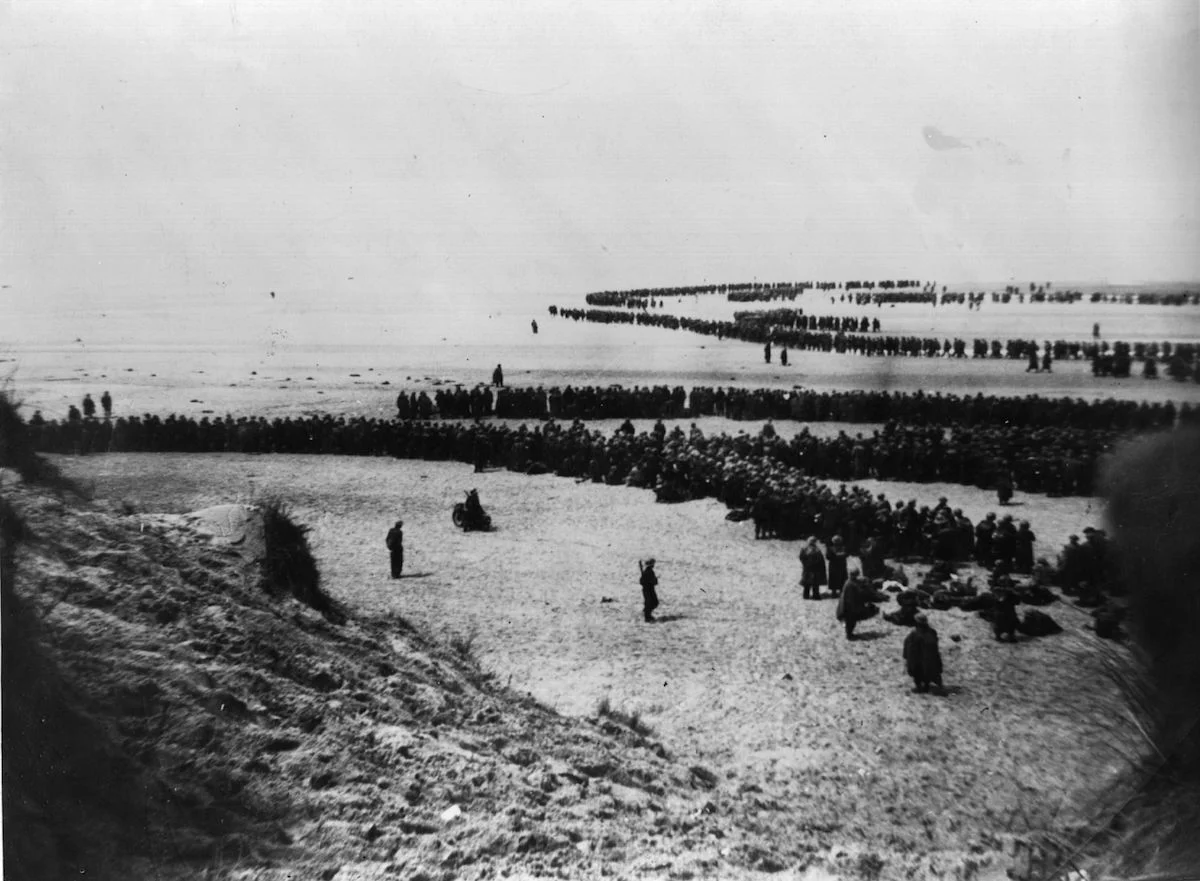
Dunkirk Review
Gavin Harwell
DUNKIRK is a film about survival, rescue, and the elements that engulf not just the characters, but you, in Christopher Nolan's magnum opus. You may have read about how this movie was made on IMAX 70mm cameras and that is supposed to mean something to someone. It does. I equate it like this: If you wanted to see the Mona Lisa, you can simply google it. Or... You can fly out to Italy to The Louvre and experience Da Vinci's art as he intended: in person. Not unlike the craze that came with movies like Avatar and Gravity, Dunkirk is a spectacle with a specific vision behind its development. There is, unlike most films, an intentionality to this movie. There is purpose. So instead of redbox-ing this film, immerse into a visceral experience that you can share with anyone. Dive into Dunkirk; the most sensorial film I've ever seen.
An inherently British film, Dunkirk stories the British and French infantry of WW2 as they battle their enemy in what appears to be an unescapable environment. I say "enemy", as throughout the film's 107 min. runtime, the audience is not shown what we are up against. There are no German faces or identifiable evils that you get from other war films. With the adversary always lurking, the real enemy, for us, is Dunkirk itself. Nolan defies the usage of stereotypical bad guys by enhancing the viewers battle with location, using the surroundings to suffocate his audience. From whipping winds, to seismic waves, amplified by an alarming score, inevitable dread fills you as hope seems increasingly lost. This is laid in conjunction with the realization of how close "home" is for most of these soldiers. The knowledge of what lies just beyond the channel increases the depression one would feel.
I mention the British-ness, not simply as an acknowledgement of Nolan's roots as a filmmaker but as an emphasis of the very heartbeat of this film. The characters are quite nearly all young, white, moppy-headed blokes, many of whom that have seen far more than they should at such a young age. With sparse dialogue, your connection with these characters is limited to their actions on screen. With Dunkirk, Nolan takes "show-don't-tell" to its pinnacle.
There is no "boys around the campfire" scene, where everyone talks of times-gone-by and "my girl" moments of elaborate reflections of why they're fighting. You have your Speilberg moments, like that in Saving Private Ryan, where in the beginning of the film Tom Hanks character's hand shakes: this signifies something to the audience about the character. It's subtle and amazing. But it is not Nolan. Instead, the audience is thrown into a battle where our protagonists in one timeline are virtually unidentifiable amidst the chaos. When thrown into oily waters, you catch yourself rising in the seat, sifting through the faces in search for someone to root for. The other two storylines laid out for us have distinguishable faces, and yet their purpose is that they could have been anyone. Any pilot, any ship captain, any boy.
This is what separates Dunkirk from other war films, specifically American films concerning WW2. There is no one individual that saves the day. There is no Saving of Private Ryan with a colorful band of brothers. There is no legendary sniper with a historic kill-log. There is no Private Doss saving hundreds of men. Your hero is an idea. England. It is home. The story's climax is on the evacuation of these stranded men, mostly by ordinary British citizens. Again, home is the heartbeat of this film. These individuals own a sense of duty, in being British, to help their fellow man.
As for the technical aspects of the film, I could write all day. The sound and score are racing with energy in an effort to keep the audience engaged equally with three separate timelines that are interwoven in a very Nolan-ian way. I've seen the film described as a third act as a movie. Meaning, the entire film feels as if the clock is ticking similar to that of a third or final act, not unlike his films TDKR and Inception, both which dealt with competing timelines, or storylines towards the end.
Dunkirk is a technical and story-telling revelation in a medium dominated by a lack of creativity. Nolan exhibits that which all artists should strive to obtain, extensive re-imagination of their craft. At the end of this film I was left marveling at how dialogue and physical antagonists were virtually unnecessary for a war film. Nolan imagines films for intellectuals: people that walk into a theater to be challenged by their own philosophies or expectations. We are lucky to have him.